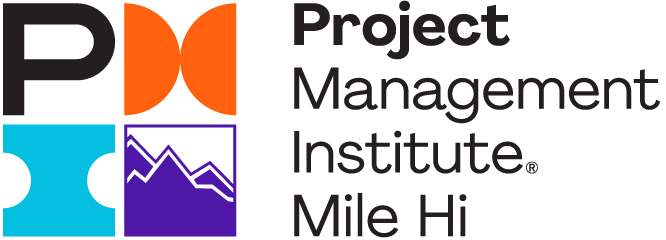24 October 2021 at 03:55PM
OKRs for Project Managers: A Research Primer
The OKR framework has been around for a long time, but it continues to gain popularity and is particularly relevant in today's evolving enterprise environment. The simplicity and scalability of the method makes it useful to organizations of all sizes. The built-in flexibility gives it staying power as companies grow and focuses shift.
This research primer will not fully describe the details of the framework. That work has been done in many formats already. Instead, I organize the information and link to quality sources so that project managers and project-oriented people can quickly get up to speed on OKRs and either lead or skillfully participate in their organizations’ OKR practices.
The Basics
The OKR Framework is a combination of goal-setting exercises and execution discipline. You can't have one without the other, and the closer they work together, the less friction and redundant work you will have to suffer through.
For learning the basics, you can't beat the whatmatters.com OKR 101 course. It includes definitions for Objectives, Key Results, and plenty of great explanations and examples.
The Books
There are plenty of books, manuals, and worksheets available to help understand OKRs. The two I list here are both comprehensive and useful but focus on two different scales: enterprise and small business.
Measure What Matters: How Google, Bono, and the Gates Foundation Rock the World with OKRs
This is the big one. A history of how OKRs were brought to Google by the man who did it. John Doerr describes his history with OKRs, the Google story, and how other large enterprises use the framework.
Radical Focus: Achieving Your Most Important Goals with Objectives and Key Results
This one is more easily digestible. In the 'business parable' tradition of Goldratt's The Goal or Gene Kim's The Phoenix Project, Christina Wodtke frames a fictional story about a small but growing company learning how to execute using an OKR Framework.
How Do OKRs and Projects Intersect?
OKR is a fantastic framework for setting goals, and Project Management systems are fantastic tools for getting work done. When they’re combined you have a complete system for managing and measuring all the work you do, from strategy to execution to success.
~ How OKR and project management work together
(blog post by Rob Davies, Head of Marketing, Perdoo)
A successful interface between an OKR framework and a project management framework hinges on two major activities: project selection and effective progress reporting.
Project Selection
The biggest impact structured OKRs can have on your project environment is helping you select which projects to execute and which to decline or cancel. The average organization has more proposed projects than it has staff or budget to execute. Without a clear organizational principle, project selection can turn into a muddy political process with poorly formed outputs.
Clear OKRs can help teams buy in to the project selection process and results. Everyone can see why selections were made and which outcomes are most important.
Effective Progress Reporting
When a project is aligned with an OKR, live and honest communication around progress is critical. Some organizations have a culture of 'Green = Good,' which encourages project teams to report green status on their projects even if they see risks, optimistically hoping that they will be able to recover later.
The OKR framework supports communicating current reality against a measurable objective. Following this principle will help teams pull together to help meet a goal. If you mask delays and risks behind green status early, trying to recover when it's too late will be unnecessarily difficult.
The OKR Cycle
Goals themselves, no matter how well constructed, are only one piece of the system. The other major component is the schedule. How a given organization sets up its schedule is up to its leadership, but common components show up in the regular business cadence for most organizations.
Annual - The annual cycle for OKR planning should line up with other annual planning cycles. Strategic planning, financial planning, and formal goal-setting all need to follow each other in a logical sequence that strikes a balance between not-too-rushed and not-too-slow.
Quarterly - Let's go right to the source for a clean quarterly schedule example. Whatmatters.com includes a great diagram and simple components of the annual and quarterly Typical OKR Cycle.
Monthly - Activities called out on the quarterly cycle take priority during monthly and weekly OKR meetings. Otherwise, months one and two of a quarterly cycle should include objective check-ins during which the chance to complete is assessed and decisions are made to continue, adjust, or otherwise recalibrate each item.
Weekly - A typical Monday includes a team meeting during which progress is assessed, specific goals are set, and cross-team collaboration is worked out. Many organizations do a ‘Celebrate the Wins’ wrap-up on Friday that is focused only on accomplishments and success.
Pro Tip for Project Mangers – If at any time you find yourself and your team inundated with meetings for different efforts or under different frameworks (for example, Scrum, standups, and check-ins), start to combine the functions of different meetings and collapse the number of recurring calls. Everyone will thank you.
In Summary
This Research Primer should help enable anyone interested in OKRs and project management to participate in an OKR effort. Contact me on LinkedIn if you have any questions or would like to share how OKRs interact with your project environment. Also, please join me at the free PMI Mile Hi Oct. 27, 2021, Regis South Roundtable to dig deep into how the OKR framework intersects project management.
Additional Resources
Interested in learning more about topics like this one? Check out upcoming events on our chapter calendar. Sign up for one of our upcoming meetings, roundtables, or workshops – a selection of which are virtual. Earn your PDUs through PMI Mile Hi Chapter!
About the Author
J. Deckert manages a consulting team specializing in complex, multi-party projects and platform implementations. He partners with businesses to develop collaborative working practices, plan strategically, and simplify then systematize processes. A PMP since 2011, J. focuses on bridging the gap between enterprise level strategic planning and ‘boots on the ground’ project management.




